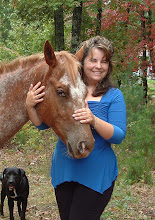Top 10 things to remember about equine parasite resistance
By Hoyt Cheramie, DVM, MS, manager, Merial Veterinary Services
Dr. Cheramie's picture is available for download
Parasite control is an important part of every equine health care program. Today, it’s no longer enough just to know what worms are bugging your horse. Now, you need to understand the basics of parasite resistance to ensure your program is effective.
If you already have enough to keep track of, don’t worry — veterinarians are your ally in keeping all the information straight. They also will help with developing and monitoring your parasite control program to ensure effectiveness and to keep resistance at bay.
When considering your parasite control program, there are 10 key things to keep in mind:
1. Resistance is a real threat. With no new parasite control products on the horizon, it’s important to start protecting our ability to control parasites by keeping current products effective.
2. Know the product class. Nearly all equine parasite control products belong to one of three different classes: benzimidazoles, macrocyclic lactones and pyrantel pamoates.
3. Use what works. It’s important to know what class you’re using because many experts believe macrocyclic lactones is the only class of medications that is capable of controlling key parasites in adult horses.1,2 For example, ivermectin, one of the two main active ingredients in ZIMECTERIN® Gold (ivermectin/praziquantel), is part of the macrocyclic lactones class.
4. Don’t rotate without reason. Many experts believe rotating through a series of different drugs will mask the effects of using products with resistance problems.3 In fact, information shows rotating through different parasite control products does not appear to slow the development of resistance.4
5. A few worms are OK. In the past, the goal of parasite control programs was to completely eliminate all parasites. However, today’s programs should be focused on reducing transmission of parasites, keeping worm burdens below harmful levels and treating clinically affected horses. Maintaining a population of parasites that can be killed by dewormers is an important factor in delaying the development of resistant parasites.2
6. Get the information. By performing a fecal egg count reduction test (FECRT), your veterinarian can help identify the key parasite threats on your premises, if the products you are using are working and what products should be included in your parasite control program.5
7. Know what’s on your farm. The species and amount of parasites attacking horses can vary by geographic area. For instance, tapeworms may be found more frequently in the upper Midwest or southeastern parts of the United States, rather than the West Coast.6
8. Get it done right. FECRTs can easily be misinterpreted if samples are collected, handled or analyzed improperly. Be sure these tests are properly conducted by veterinarians or by independent, reputable laboratories.
9. Treat the “problem” horses. It’s estimated that 20 percent to 30 percent of the horses on a farm put out about 80 percent of the parasite eggs, while other horses tend to shed fewer worm eggs whether treated or not.2 By focusing treatments on horses shedding most of the worm eggs, you can help maintain a population of susceptible parasites, reduce the risk of resistance and help keep horses healthy.2
10. Guarantee success. We are all concerned about keeping our horses healthy, and the best way to make certain your product works is to look for products with a 100 percent product satisfaction guarantee.
With several different kinds of parasites waiting to attack horses and confusion surrounding the resistance problems of some parasite control products, it is harder than ever to be sure all key parasite threats are controlled. Keep these 10 tips in mind and your veterinarian’s number handy, and you’ll be set for the new era of parasite control.
Dr. Cheramie specializes in equine surgery and performance horse medicine and has a special interest in colic and performance-limiting problems, including gastric ulceration and lameness. He holds a doctorate of veterinary medicine from Louisiana State University and is a diplomate of the American College of Veterinary Surgeons.
Warning: Not for use in humans. Keep this and all drugs out of reach of children. In horses, there have been rare reports of swelling and irritation of the mouth, lips and tongue following administration of ZIMECTERIN Gold. These reactions have been transitory in nature. Do not use in other animal species as severe adverse reactions, including fatalities in dogs, may result.
®ZIMECTERIN is a registered trademark of Merial Limited. ©2009 Merial Limited. Duluth, GA. All rights reserved. EQUIZIM934 (08/09).
For more information, contact:
Rachel Torbert
Bader Rutter
(402) 434-5307
rtorbert@bader-rutter.com
1Lyons ET, Tolliver SC, Ionita M, Collins SS. Evaluation of parasiticidal activity of fenbendazole, ivermectin, oxibendazle and pyrantel pamoate in horse foals with emphasis on ascarids (Parascaris equorum) in field studies on five farms in central Kentucky in 2007. Parasitol Res 2008;103:287-291.
2Kaplan RM. These ain’t your father’s parasites: An evidence-based medical approach to equine parasite control. The Practitioner October 2008.
3Kaplan RM, et al. Prevalence of anthelmintic resistance cyathostomes on horse farms. Parasitology Today 1999;15(4):156-159.
4Uhlinger CA, Kristula M. Effects of alteration of drug classes on the development of oxibendazole resistance in a herd of horses. J Am Vet Med Assoc 1992;201:51-55.
5Reinemeyer CR. Rational approaches to equine parasite control. In: Proceedings for the 2004 Equine Nutrition Conference for Feed Manufacturers. 2004:64-72.
6Reinemeyer C. Updates on the biology, diagnosis and control of cestodes in horses. Proc WAAVP 2003:16.
Wednesday, October 21, 2009
Subscribe to:
Post Comments (Atom)
Horse Industry related news and opinions as well as personal observations about life, love and horsiness from HorseSouth Magazine founder and publisher Tess Vanattia.
About Me

- Tess Logic
- I'm Tess the owner and founder of HorseSouth Magazine. The south's BEST horse publication. I am 38 years old. I am happily married to a wonderful guy. We have 3 beautiful children, 4 horses, 2 dogs and a very busy life. http://www.horsesouth.com
No comments:
Post a Comment